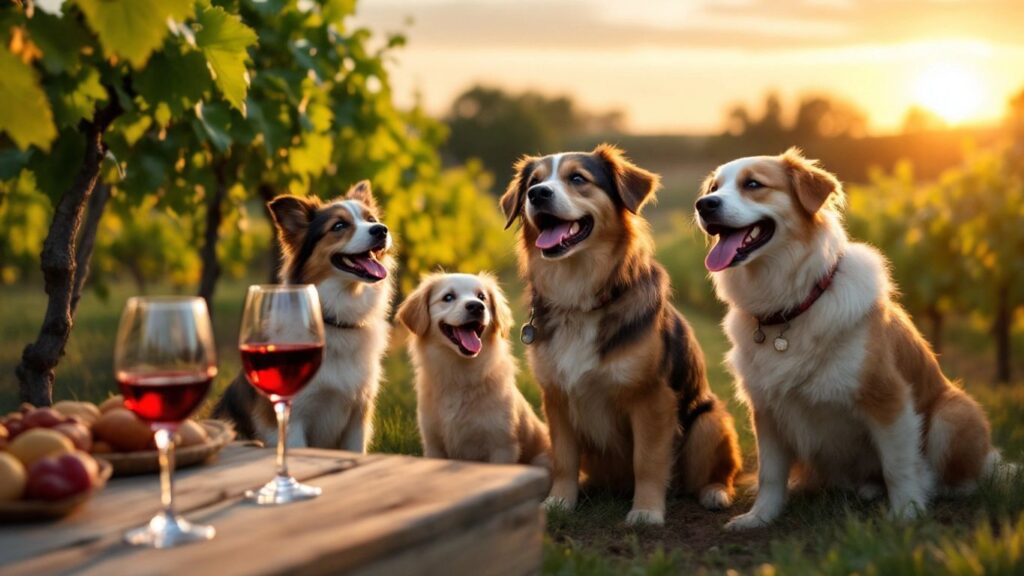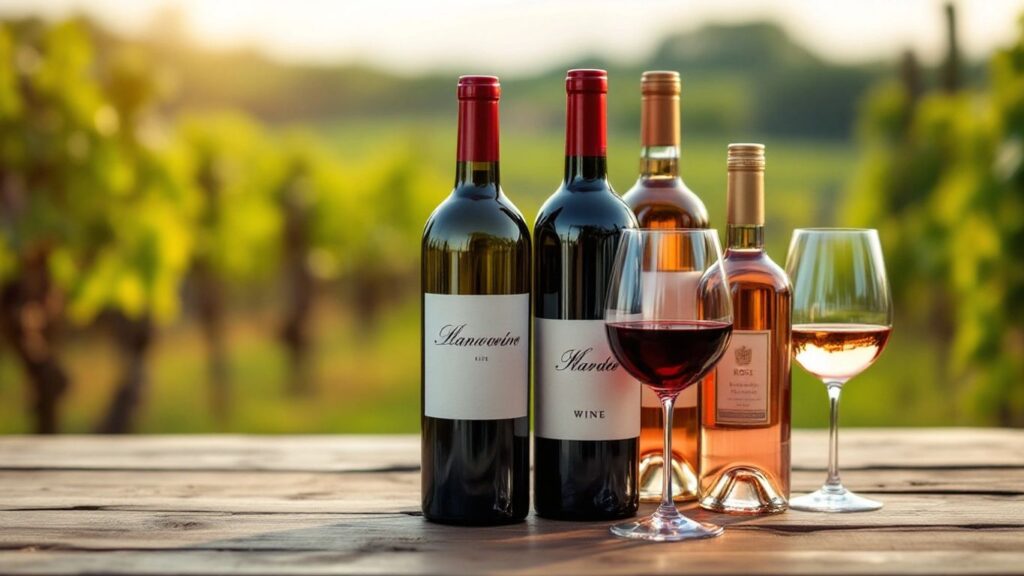Wine lovers are increasingly looking for ways to support eco-friendly practices in the industry. Many wineries are stepping up to meet this demand by adopting sustainable methods. These practices help protect the environment and often result in higher quality wines.
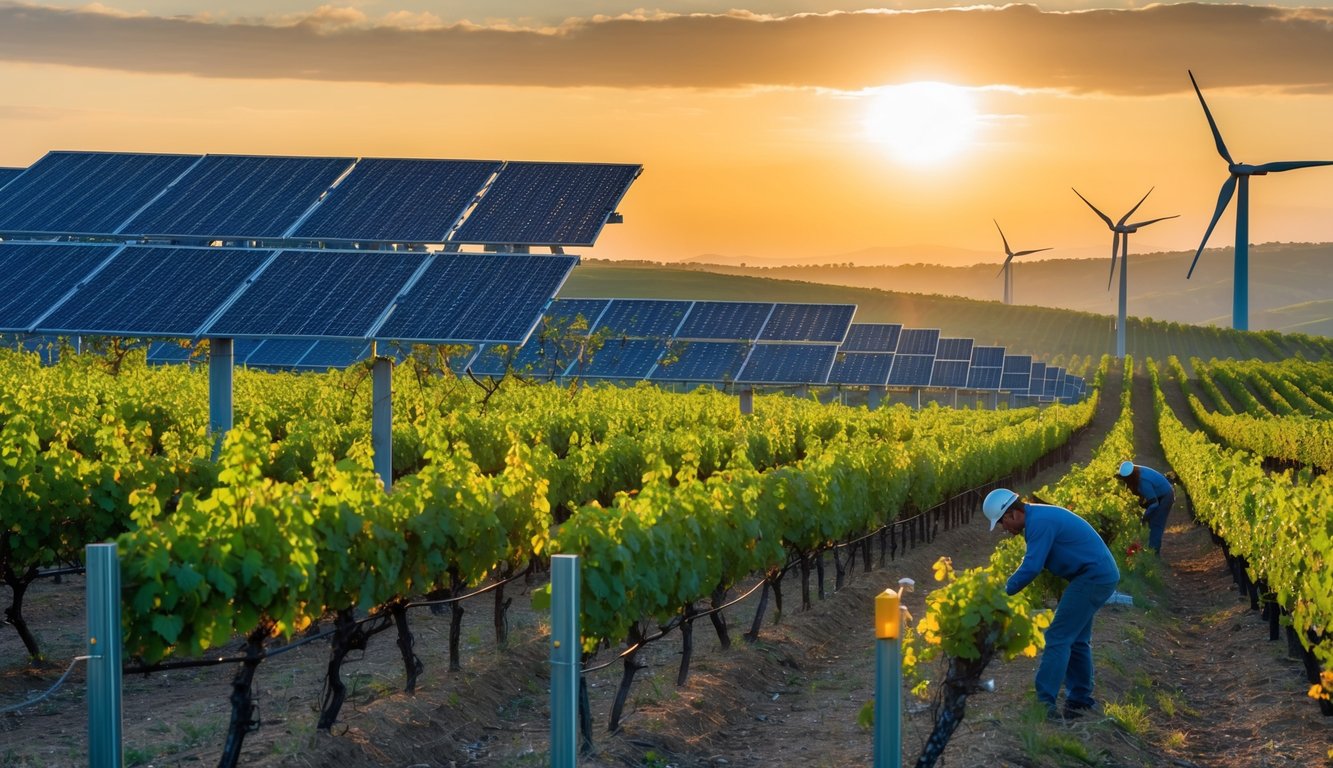
You can make a positive impact by choosing wines from eco-friendly wineries. By supporting these businesses, you’re voting with your wallet for a more sustainable future. Let’s explore five top wineries that are leading the way in environmental stewardship.
1) Frog’s Leap Winery
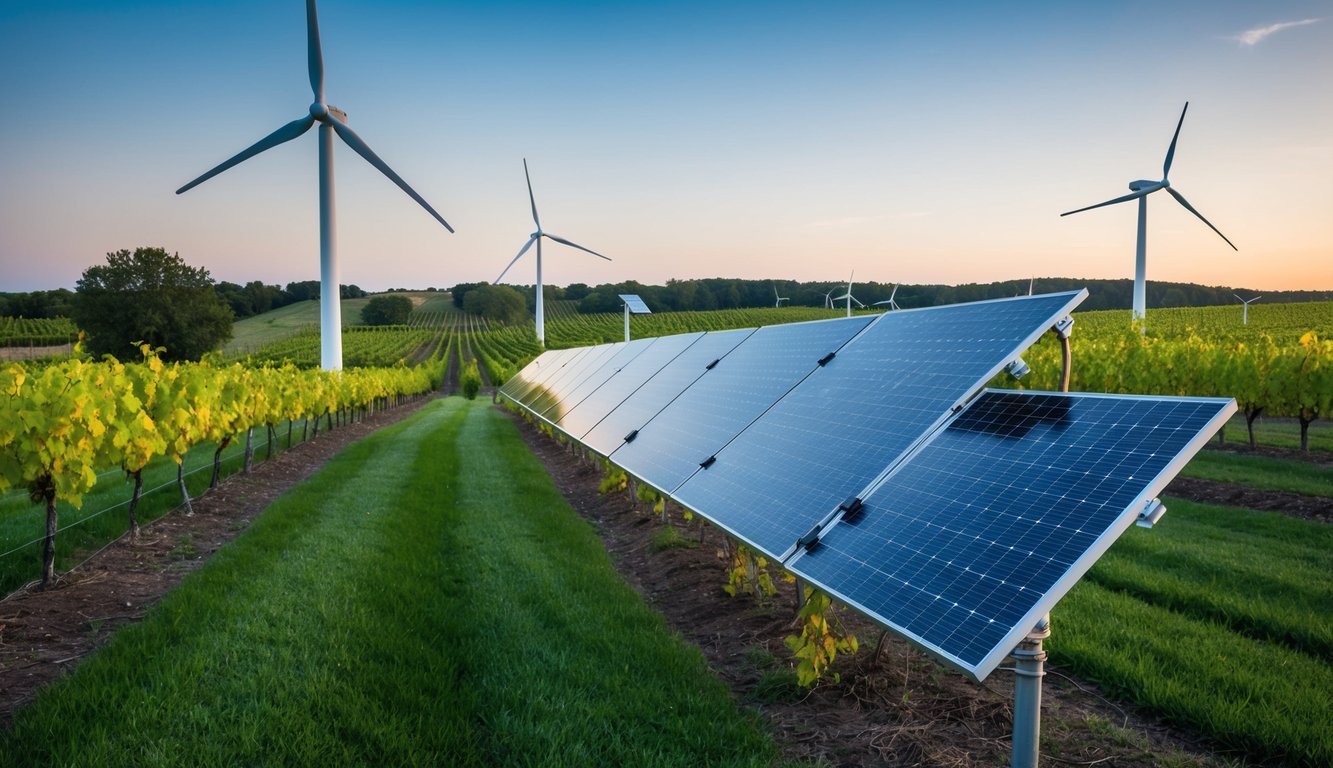
You’ll find Frog’s Leap Winery nestled in the heart of Napa Valley. This iconic vineyard has been championing sustainable practices since 1981.
Frog’s Leap stands out for its commitment to organic farming. Their vineyards have been certified organic since 1989.
What makes this winery truly unique is its dry-farming technique. You won’t see any irrigation systems here. This method helps produce grapes with intense flavors.
The winery offers a range of wines, including Zinfandel, Merlot, and Sauvignon Blanc. All are made from organically grown grapes.
When you visit Frog’s Leap, you’ll experience more than just great wine. You’ll see firsthand how sustainable practices can produce exceptional results.
Their motto, “Time’s fun when you’re having flies,” reflects the winery’s lighthearted approach. But don’t be fooled – they take their commitment to the environment seriously.
2) Tablas Creek Vineyard
Tablas Creek Vineyard stands out as a leader in sustainable winemaking. Located in Paso Robles, California, this winery has set a high bar for eco-friendly practices.
You’ll find that Tablas Creek is one of only ten farms worldwide to achieve Regenerative Organic Certification. This certification goes beyond organic farming, focusing on soil health, animal welfare, and social fairness.
The vineyard uses biodynamic practices to enhance soil vitality and vine health naturally. These methods help create a balanced ecosystem within the vineyard.
Tablas Creek also prioritizes water conservation. They’ve implemented efficient irrigation systems and drought-resistant rootstocks to minimize water usage.
When you visit, you can see their commitment to biodiversity firsthand. The vineyard is home to various animals, including sheep and alpacas, which help with weed control and soil fertilization.
By choosing Tablas Creek wines, you’re supporting a winery that truly cares about the environment. Their dedication to sustainability extends from the vineyard to the bottle, making them a top choice for eco-conscious wine lovers.
3) Red Tail Ridge Winery
Red Tail Ridge Winery stands out as a sustainable winery in the Finger Lakes region of New York. You’ll find this eco-friendly gem on the western shore of Seneca Lake.
The winery is owned and operated by a husband and wife team who are passionate about sustainability and quality wine production. Their commitment to the environment shines through in every aspect of their business.
At Red Tail Ridge, you can enjoy cool-climate varieties produced in small batches. This approach allows for a personal touch on all their wines. The winery also experiments with special winery-only productions, giving you unique tasting experiences.
The winery’s building is designed with efficiency in mind. It’s compact, well-insulated, and partially powered by solar energy. These features significantly reduce the winery’s energy consumption.
Red Tail Ridge doesn’t just focus on sustainability; they also give back to the community. The winery has donated $45,000 to date to help provide food for those in need, especially during challenging economic times.
When you visit Red Tail Ridge Winery, you’re not just tasting great wine. You’re supporting a business that cares deeply about the environment and its community.
4) Stoller Family Estate
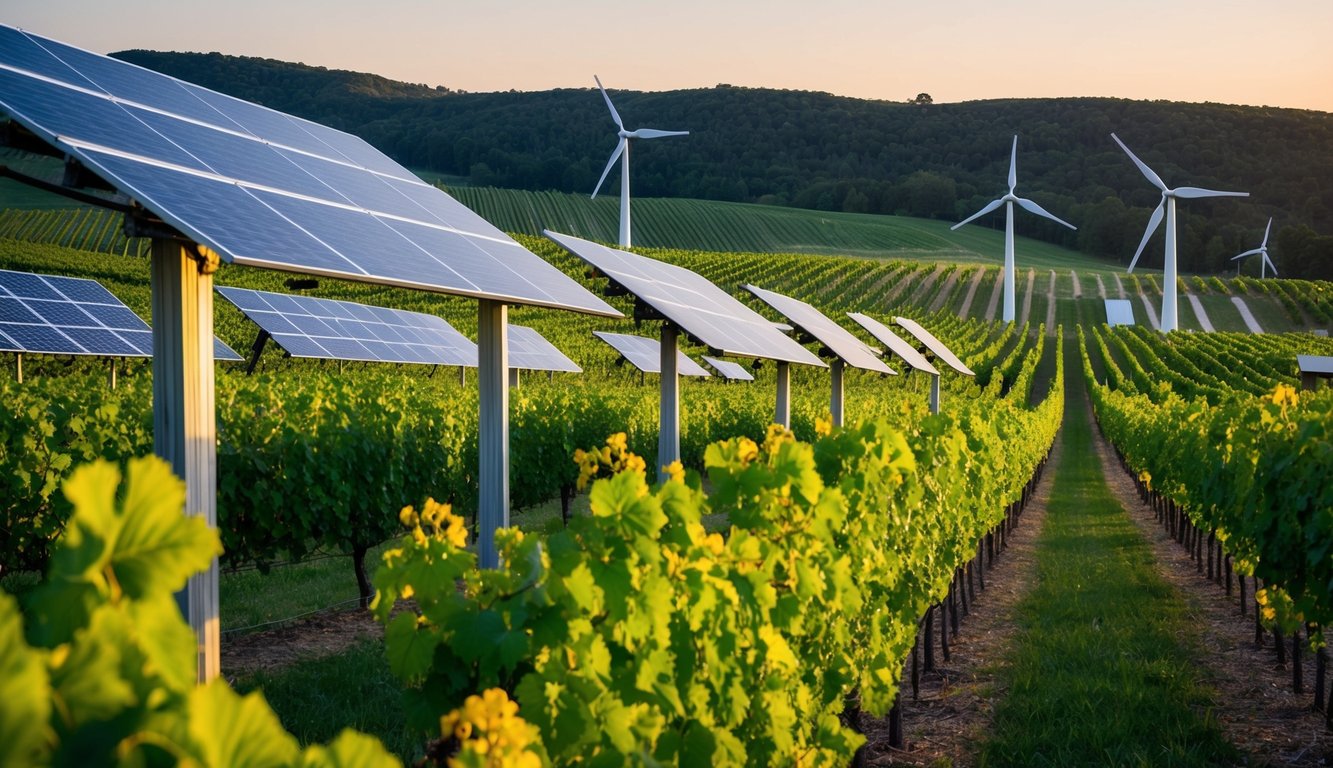
Stoller Family Estate in Oregon’s Willamette Valley stands out as a leader in eco-friendly winemaking. You’ll find their commitment to sustainability impressive.
The winery boasts the world’s first LEED Gold certified winemaking facility. This certification highlights their dedication to green building practices.
Stoller Family Estate goes beyond just buildings. They’re also the first winery in the Northwest to become energy neutral. Their south-facing roofs house 1,200 solar panels, producing more than double their electrical needs.
Your visit to Stoller supports biodiversity too. The estate creates habitats for endangered species like the Fender’s Blue butterfly and Taylor’s Checkerspot butterfly.
The winery’s eco-friendly practices extend to their team. Stoller pays a living wage and covers 95% of health care costs for full-time employees. This shows their commitment to social sustainability.
When you choose Stoller wines, you’re supporting a business that cares for the environment and its people. Their efforts have earned them recognition in Architectural Digest for planet-saving initiatives.
5) Honig Vineyard & Winery
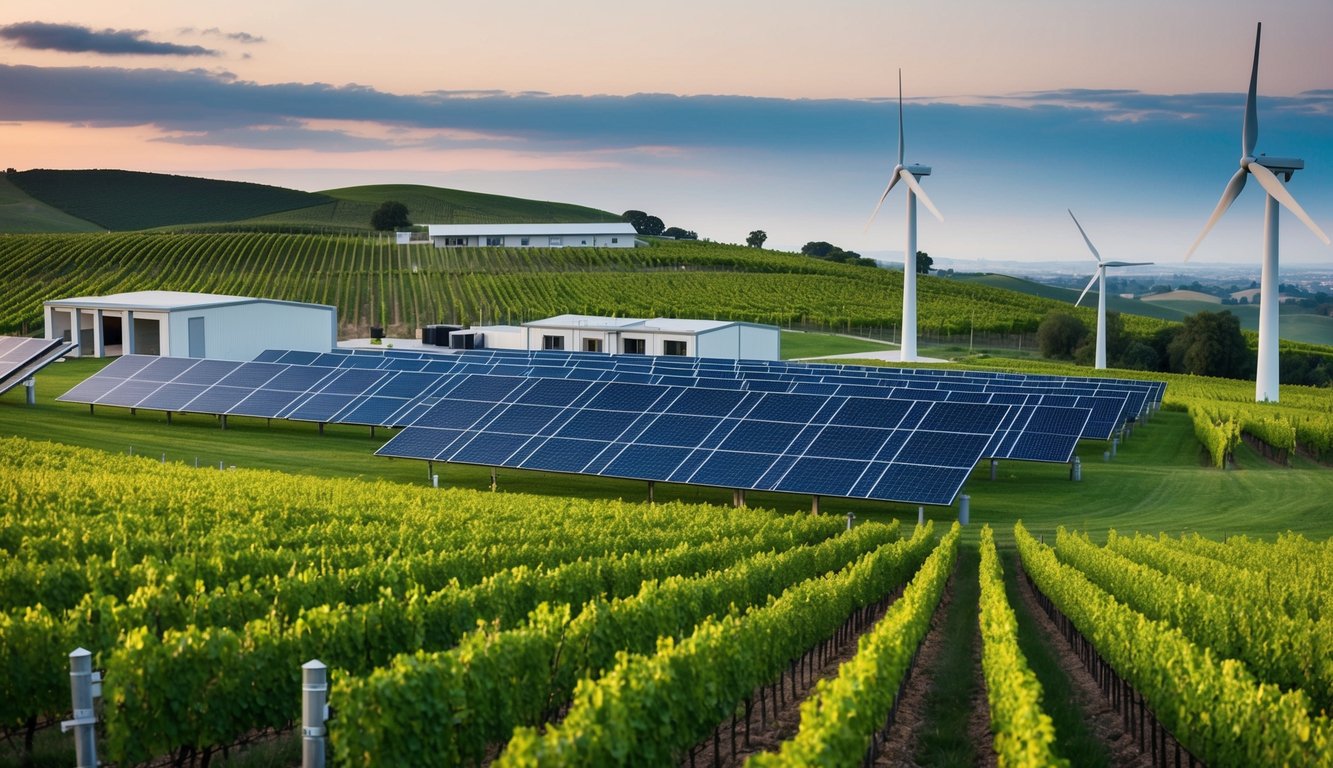
Honig Vineyard & Winery is a family-owned winery in Rutherford, California. You’ll find them dedicated to preserving the Napa Valley through sustainable practices and quality wines.
When you visit Honig, you can take an eco-tour of their vineyards. You’ll ride in a 6-passenger cart and see firsthand how they care for the environment while making great wine.
The winery uses solar energy to power much of its operations. This shows their commitment to reducing their carbon footprint.
Honig has also made changes to their packaging to help the planet. They’ve removed foil capsules from their wine bottles, keeping over 3,800 pounds of metal out of landfills each year.
You can enjoy Honig’s wines knowing they focus on sustainable farming. They manage water use carefully and provide wildlife habitats in their vineyards.
When you choose Honig, you’re supporting a winery that balances great taste with environmental responsibility. Their specialties include Sauvignon Blanc and Cabernet Sauvignon.
Sustainable Practices in Winemaking
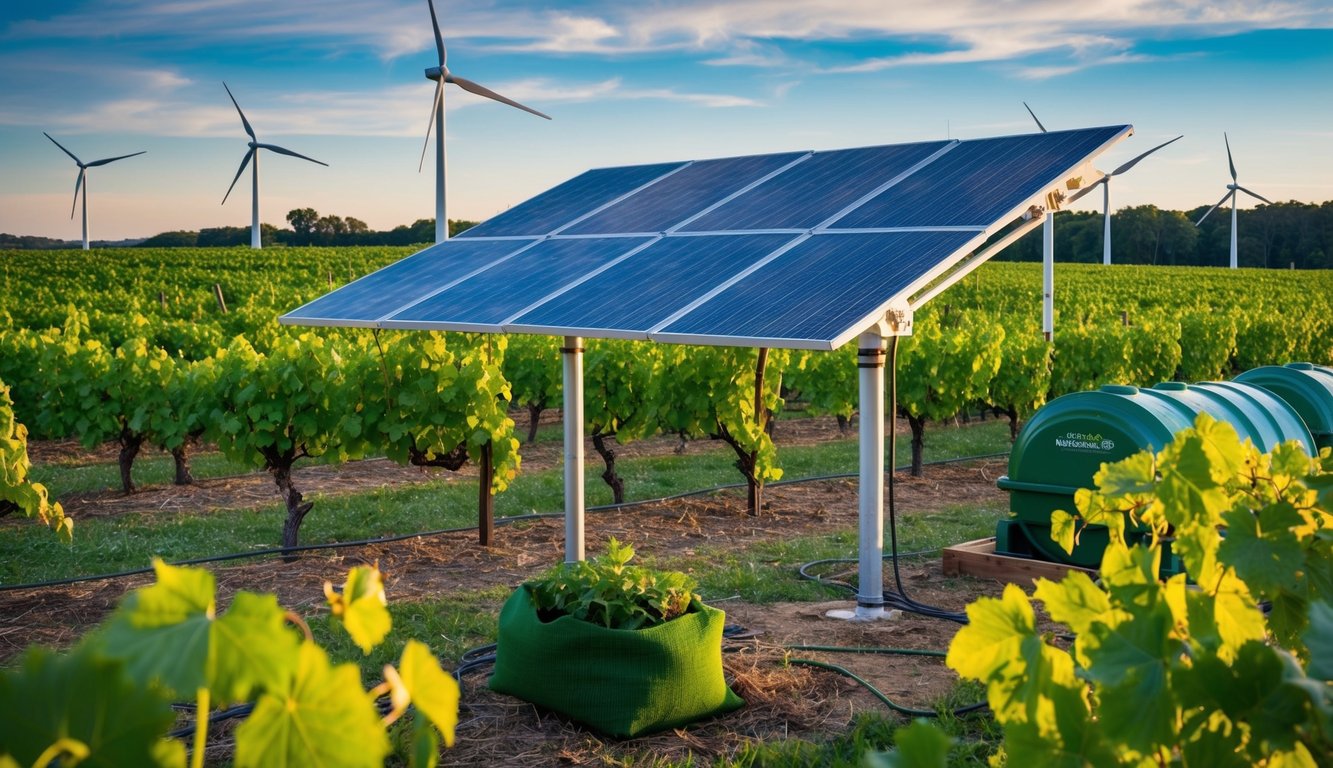
Eco-friendly wineries use methods that protect the environment and produce high-quality wines. These practices focus on natural farming and saving water.
Organic and Biodynamic Farming
Organic farming avoids synthetic chemicals. Wineries use natural pest control like beneficial insects. They also plant cover crops to improve soil health.
Biodynamic farming goes further. It treats the vineyard as a whole ecosystem. Wineries follow a special planting calendar based on moon phases. They use special compost mixes called “preparations” to boost soil life.
Château Pontet-Canet in France is a leader in biodynamic practices. They’ve used these methods since the early 2000s. This approach helps make their soil and vines healthier.
Water Conservation Techniques
Water-saving is crucial in winemaking. Many wineries use drip irrigation to water vines efficiently. This method delivers water directly to plant roots.
Some collect rainwater for vineyard use. Others recycle winery wastewater for irrigation. These practices help save fresh water.
Benziger Family Winery in Sonoma Valley is known for its water-saving efforts. They use ponds to collect rainwater. This water is then used in the vineyard during dry spells.
Understanding Eco-Certifications
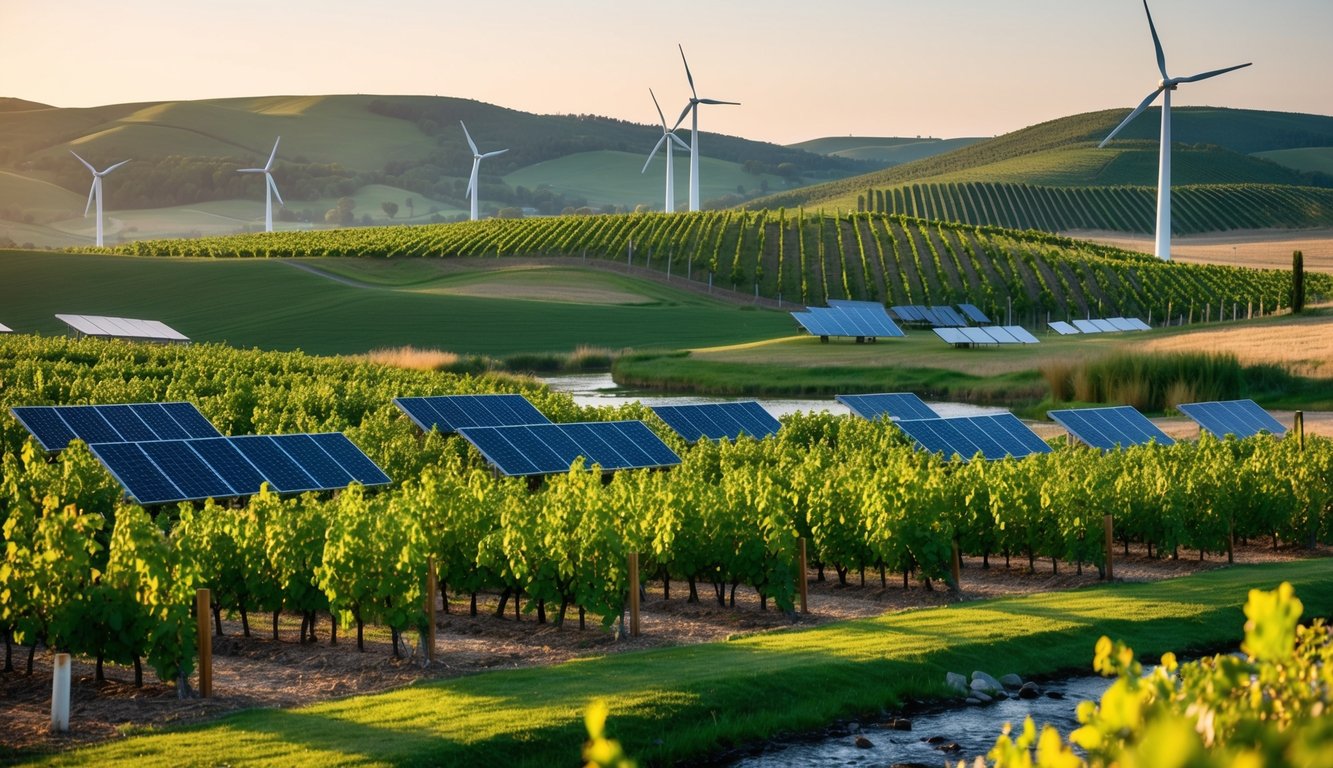
Eco-certifications help wine lovers choose sustainable options. They show which wineries follow green practices and care for the environment.
Importance of Certifications
Eco-certifications give you peace of mind when buying wine. They prove a winery’s commitment to the planet. These labels mean the winery follows strict rules for soil health, water use, and pest control.
Certified wineries often make better quality wine. They take extra care of their land and grapes. This care shows in the taste.
Certifications also help wineries stand out. You can spot eco-friendly wines easily on store shelves. This makes it simple to support green businesses.
Common Eco-Certifications in Viticulture
Several eco-certifications exist for wineries. Each has its own focus and standards.
LIVE certification looks at the whole picture. It checks energy use, waste management, and farming practices. LIVE certified wineries work hard to protect nature.
Certified California Sustainable Winegrowing (CCSW) is big in California. It makes sure wineries produce high-quality wine while caring for the land.
SIP Certified wineries focus on social responsibility too. They ensure fair wages and safe working conditions. These wineries also support their local communities.
Organic certification is another common label. It means no synthetic pesticides or fertilizers were used. This protects soil and water quality.
The Impact of Eco-Friendly Wineries
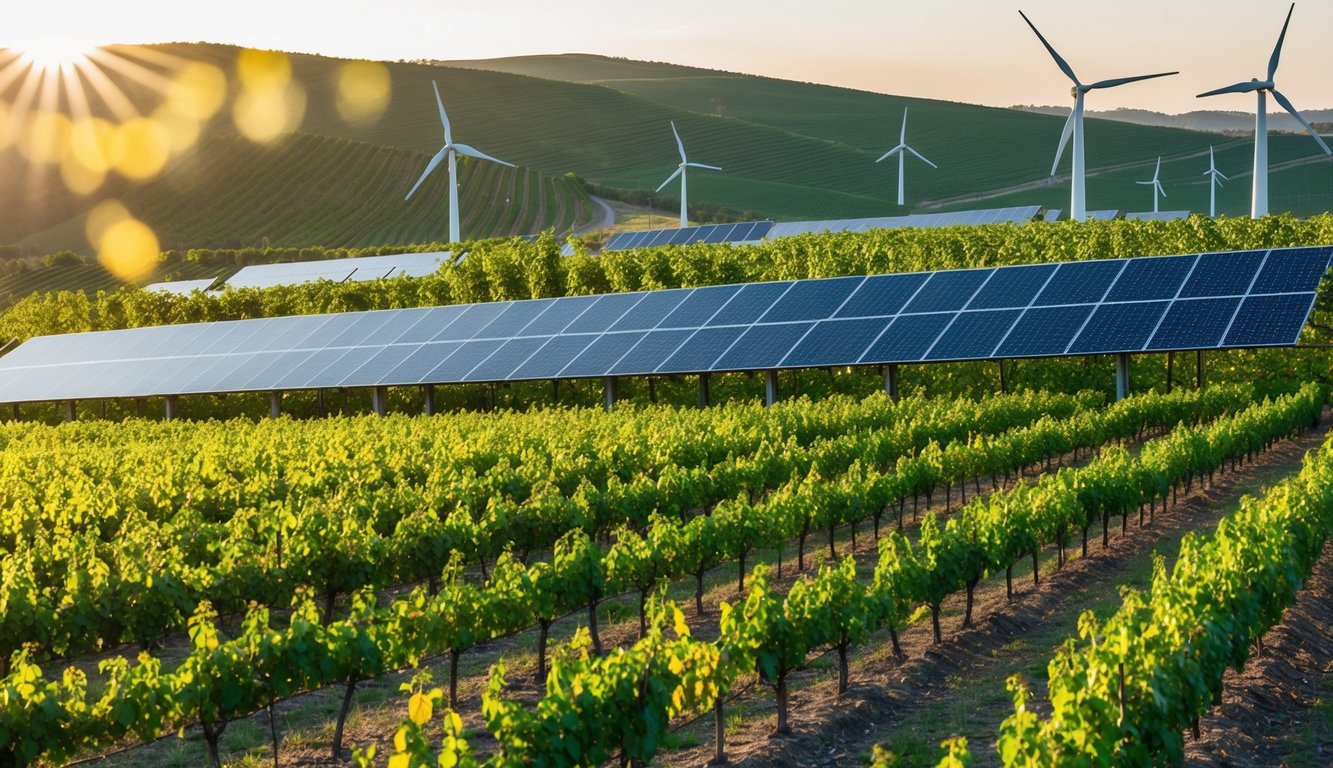
Eco-friendly wineries make a big difference for the planet and local communities. Their practices help nature and boost the economy in wine regions.
Environmental Benefits
Sustainable wineries use farming methods that are good for the earth. They often choose organic or biodynamic ways to grow grapes. This means less harmful chemicals in the soil and water.
These wineries work hard to save water. They find smart ways to use less of this precious resource. This helps during dry times when water is scarce.
Eco-friendly wineries also protect plants and animals. By not using harsh chemicals, they make their vineyards safe for local wildlife. This creates a balanced ecosystem where many species can thrive.
Many of these wineries use renewable energy like solar power. This cuts down on pollution and helps fight climate change. Some even package their wine in ways that create less waste.
Community and Economic Impact
Eco-friendly wineries often support their local areas. They buy from nearby suppliers and hire local workers. This keeps money in the community and helps small businesses grow.
These wineries can boost tourism too. Many people want to visit places that care about nature. This brings in visitors who spend money at hotels, restaurants, and shops.
Some eco-friendly wineries teach others about sustainable practices. They might hold classes or tours to show how they work. This spreads knowledge and can inspire more people to think about the environment.
By choosing eco-friendly wines, you support businesses that care about their impact. Your choice helps create jobs and protect the earth at the same time.
